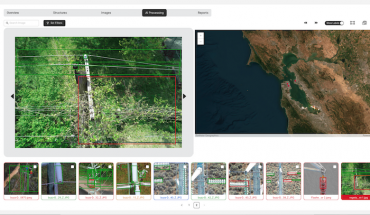There has been lots of talk about the AI chatbot ChatGPT of late, coming from various angles. Some believe the service, created by OpenAI, poses a threat to journalism, coding, and other similar industries. Even news outlets like CNN have used ChatGPT to compose articles, with varying results, including some rife with inaccuracies.
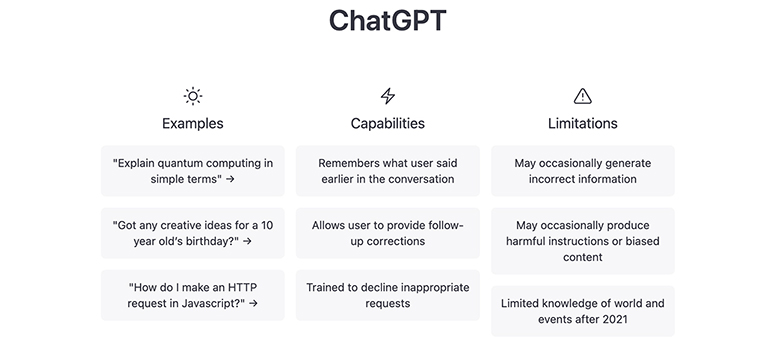
What is ChatGPT?
First off, let’s look at what ChatGPT is. Created by OpenAI, ChatGPT is a chatbot that can reply to just about any query, but does so in conversational form, as if you’re talking to a human. You can ask a single question, engage in a conversation, or even ask ChatGPT to compose long-form text, like a comparison of various services, products, or features. Of course, take what you get with a grain of salt.
Along with journalists, coders, financial workers, legal assistants, and other professionals are worried about what ChatGPT could mean for the future, schools are also concerned about students turning in work they didn’t actually write themselves. So much so, in fact, that Toronto-based 22-year-old Edward Tian developed GPTZero, an app that can determine if a piece of work was written by a person or a machine.
The Princeton University computer science major developed the app to measure various aspects of a written report, from creativity to variability in writing, then deliver a score that advises if a human or an AI wrote it. According to CP24, Tian is currently working on a version of GPTZero specifically for educators.
ChatGPT As a Search Engine
But there’s another angle to ChatGPT: as a search engine. You can ask questions in a conversational form and ChatGPT will reply in kind. You’ll get a sentence, a paragraph, maybe even more, in response. It’s far more robust than the stream of resource links Google provides as a search result. But will ChatGPT become the new Google?
Microsoft seems to think so, as the company recently re-launched its Bing search engine in partnership with OpenAI, and claims that it will be “more powerful than ChatGPT,” according to Business Insider. Running on Microsoft’s “Prometheus model,” the new Bing promises to make responses more relevant, annotate answers using web links and citations, and have a better understanding of geolocation. A chat extension, meanwhile, can be used for things like planning trips and shopping.
Ask Bing to recommend the cheapest TV, for example, or help you create a trip itinerary for the upcoming family vacation. It will even be able to compose e-mails for you with “personalized touches,” says Microsoft.
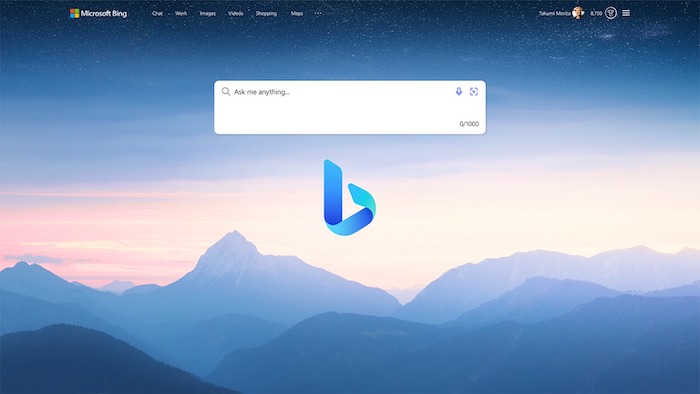 This new Bing has the potential to change the face of search engines, but Google likely won’t fade to the background.
This new Bing has the potential to change the face of search engines, but Google likely won’t fade to the background.
The company is already working on its Bard tool, which works similarly to ChatGPT and runs on Google’s own internal language model called LaMDA. Given the vast database of content and search results Google has at its fingertips, the company is in a good position to compete.
But from a search perspective, will this change be a good thing?
Using ChatGPT for Search: What’s Good
I tried ChatGPT for a few searches (when I didn’t get the dreaded “at capacity” notice many are seeing today when trying to use it) to get a feel for how it works. There are a few things I like about it.
The conversational format – The best thing about ChatGPT is its conversational format. While typing a search query containing into Google seems almost robotic, doing so in ChatGPT feels more like chatting with a friend. You can ask a question just as you might when instant messaging a person and it will respond like a friend might while sitting down for coffee. Of course, there’s no personality nor creativity in the response. It’s just bare bones facts. But if you ask for things like recommendations, you’ll get a diverse list of options that might suit your tastes.
No ads – There are no distracting adds with ChatGPT. It’s a simple interface with text on the screen and that’s it. Of course, this is bound to change as ChatGPT becomes integrated with other platforms, like Bing.
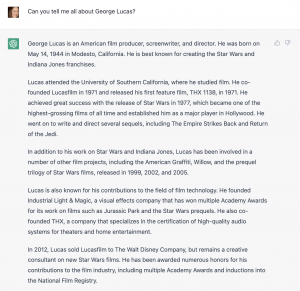 Detailed information – Sometimes, you want more than just a one-word answer or a series of links like you’d get with Google. ChatGPT provides detailed answers, in many cases, that contain all the information you want, plus additional information that you might find useful. While this isn’t always welcome, sometimes, it’s appreciated. For example, my 11-year-old is currently working on a school project about George Lucas. When I asked ChatGPT to tell me all about the iconic film producer, screenwriter, and director, I received a several paragraphs’ long biography with tons of useful information he would be able to use for his assignment.
Detailed information – Sometimes, you want more than just a one-word answer or a series of links like you’d get with Google. ChatGPT provides detailed answers, in many cases, that contain all the information you want, plus additional information that you might find useful. While this isn’t always welcome, sometimes, it’s appreciated. For example, my 11-year-old is currently working on a school project about George Lucas. When I asked ChatGPT to tell me all about the iconic film producer, screenwriter, and director, I received a several paragraphs’ long biography with tons of useful information he would be able to use for his assignment.
Using ChatGPT for Search: What’s Bad
There are still limitations with ChatGPT from a search perspective, some of which could be rectified in time. But others might turn people off from this new conversational way of searching for and getting answers.
Inconsistent results – The first thing I noticed with ChatGPT is that results weren’t always consistent. I would get one answer one day then another sometimes more concise one the next. The system is continuously learning and refining, which brings me to the next negative.
Knowledge limitations – Currently, ChatGPT’s knowledge cut-off is 2021, which means if you ask questions about anything that has happened recently, or want details that provide an up-to-the-minute account, you won’t get that. Whereas with Google, you’ll always get the most recent results and updated information, ChatGPT is largely outdated. For example, when I asked for it to tell me the difference between the Apple Watch Series 8 versus Series 7, it believed the Series 8 was still a rumoured product and had not yet been released. This, of course, will change over time as ChatGPT builds its database of information. But how quickly can it keep up?
Needs more context at times – ChatGPT sometimes needs more context than Google would. If you type something fairly vague into Google, even something rife with typos because you rushed, Google will figure out what you want. ChatGPT sometimes doesn’t quite get it. Even though it understands conversational speech, it doesn’t always understand context.
Sometimes less is more – Conversely, sometimes, ChatGPT will provide more information than you need, like a friend who rambles on when you just want a simple answer. If you just want to know an actor’s name, for example, it might also delve into everything this actor has done and details about their personal life you didn’t really want to know.
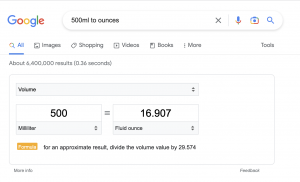 It’s slower – This isn’t just with lengthy replies, but even short ones can take several seconds to appear. Compared to Google, it can take upwards of 10-15 seconds to get a reply. I asked, for example, how many ounces is in 500mL. ChatGPT took several seconds to get the simple response while with Google, it popped up in a nanosecond. Keep in mind that these types of simple questions are not what AI chatbots like ChatGPT are designed to answer. They are designed for more complex questions, like informing about which measurement types are used in different countries and why, or how to actually bake the cake you’re making right now. But it’s worth noting, nonetheless.
It’s slower – This isn’t just with lengthy replies, but even short ones can take several seconds to appear. Compared to Google, it can take upwards of 10-15 seconds to get a reply. I asked, for example, how many ounces is in 500mL. ChatGPT took several seconds to get the simple response while with Google, it popped up in a nanosecond. Keep in mind that these types of simple questions are not what AI chatbots like ChatGPT are designed to answer. They are designed for more complex questions, like informing about which measurement types are used in different countries and why, or how to actually bake the cake you’re making right now. But it’s worth noting, nonetheless.
There’s no personalization – ChatGPT doesn’t know “you.” The way Google gathers information about you from various sources like social media, search history, and other methods is frowned upon, but it also ensures you get responses that are much more personalized. With that said, this could change as ChatGPT integrated with services like Bing and companies like Google develop their own conversational AI search engines using tools like Bard.
Can’t always trust the information – Most pressing is that I can’t rely on the summary answer ChatGPT might provide about which is the best TV to buy, for example, or if I should upgrade my computer, because I don’t know what sources were used to gather it. There are a lot of uneducated opinions online about everything from tech to science, travel to medicine. How do I know the information was acquired from reputable reviewers, real journalists, and trusted sources versus a series of uneducated comments and opinions that flood the internet from everyday Joes?
Want to try ChatGPT?
There’s no harm in giving ChatGPT a try to see how it works from a search perspective for you. You can try ChatGPT for yourself for free. As more people get curious about it, however, expect the server to be overloaded from time to time.
-30-
More on ChatGPT

